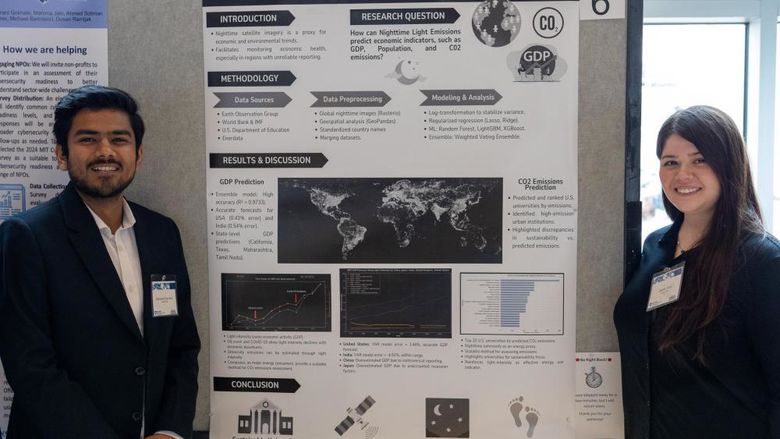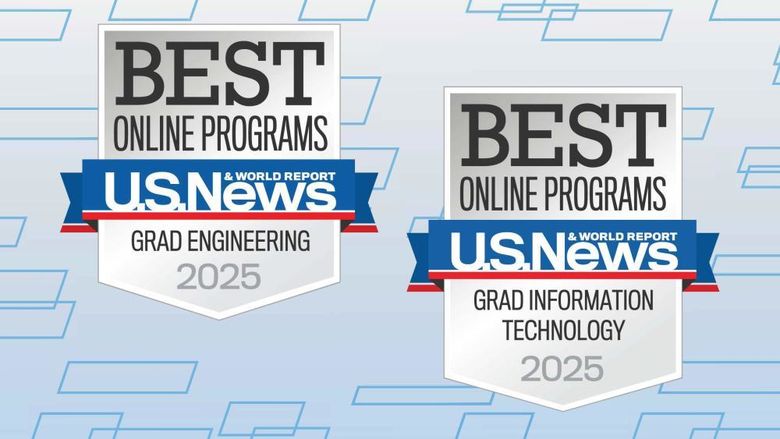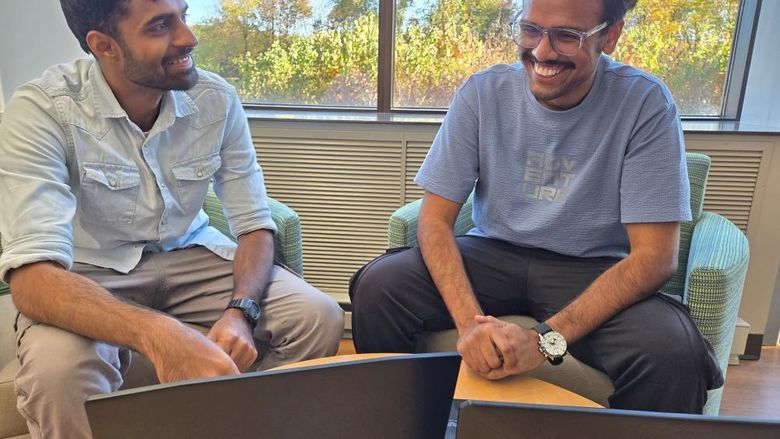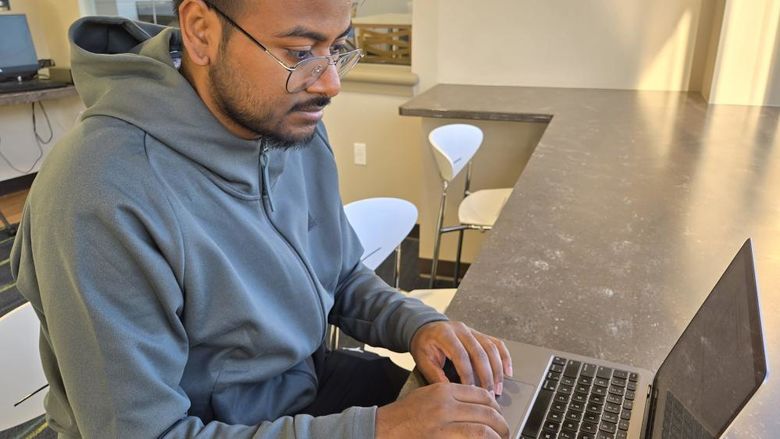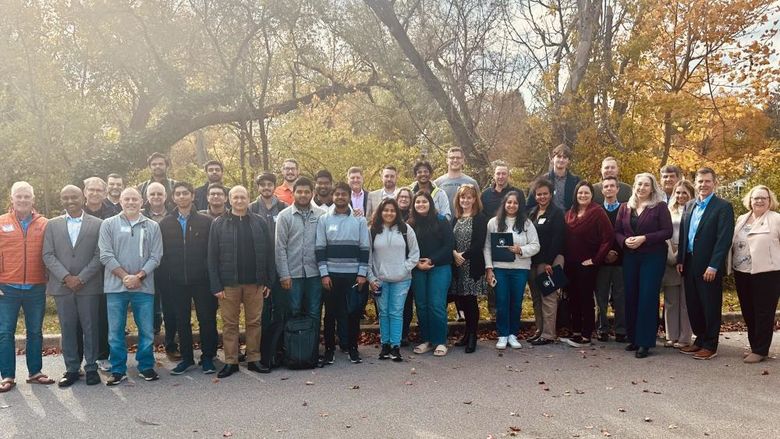
Rahul Vemuri
MALVERN, Pa. — Rahul Vemuri had a successful career as a senior software engineer in Mumbai, but he began to wonder if understanding data better could help him develop more effective solutions to the workplace problems he was solving.
“I used to jump to the [artificial intelligence (AI)] models directly without actually having a greater understanding of the data, like, for example, data cleaning,” said Vemuri, who graduated with a master of data analytics from Penn State Great Valley in 2024. “And then how do you actually apply statistical techniques in order to analyze the data better?”
Vemuri said that asking these questions and probing deeper “led me to change my approach and focus on data specifically, and enriching data to give better results.”
Vemuri applied to graduate programs and selected Penn State Great Valley’s master of data analytics. He said appreciated the strong technology focus at the campus, and he was awarded the merit-based chancellor’s scholarship for full-time graduate students. Through taking courses in statistics, data mining and reinforcement learning, Vemuri said he developed a strong foundation for approaching problems more strategically and organizing large amounts of data to create accurate prediction models and make sound business decisions.
To practice these skills and gain experience, Vemuri participated in the 2023 NASA International Space Apps Challenge, an annual global hackathon with more than 5,500 teams submitting projects. Vemuri led a team whose goal was to use advanced AI tools to summarize and interpret NASA's technical standards to make the requirements more accessible for mission designers.
During the project, Vemuri encountered obstacles, so he sought help from Satish Mahadevan Srinivasan, associate professor of information science.
“I scheduled a call, he gave me an approach, and I’m glad to say that I qualified as a global finalist,” Vemuri said. He led his team to design a solution that was shortlisted among the top 40 projects globally.
Vemuri also said he appreciated Srinivasan’s guidance during his work on a capstone project that focused on real-time stock market prediction using forecasting algorithms that incorporated news sentiment analysis to enhance prediction accuracy. Building upon a previous project in which Vemuri trained and fine-tuned an AI model to predict positive, neutral and negative sentiments, he developed a full-fledged app for his capstone project that allows users to analyze the sentiments of financial news headlines easily, aiding investment decisions, providing market insights and enhancing risk management practices.
Vemuri gained further experience through working with Raghu Sangwan, professor and director of Penn State Great Valley’s engineering programs, on an industry collaboration with PQ LLC, a leading global provider of silicates, silicas and derivative products used in industrial processes and consumer products. Vemuri completed a customer geocoding project for PQ in which he used Amazon Location Services and the AI model Claude Sonnet to eliminate duplicate records, validate customer addresses and convert the addresses into geographic coordinates.
When PQ was seeking a data scientist intern to assist with market forecasting, Vemuri applied for the position. During the interview, he discussed his capstone project and how he looked beyond the typical external market indicators to see how current events on specific continents were impacting sentiment about the stock market.
“That’s the visionary idea that they really liked,” Vemuri said.
He also had related experience from working on a forecasting project in his software engineering job in Mumbai, in which he used historical data to predict the future usage of virtual machines and to optimize their capacity and resource allocation accordingly.
Based on his experience and his problem-solving abilities, PQ accepted Vemuri as a data scientist intern. He developed an end-to-end AI-automated demand forecasting solution to analyze worldwide market indicators that affect PQ's sales. He also helped build an internal chatbot that could answer queries about PQ's products.
Walter Reinfeld, PQ’s vice president of strategic marketing and Vemuri’s internship supervisor, commended his work.
“His skills in uncovering patterns, trends and insights from data have been invaluable,” Reinfeld said.
Reinfeld encouraged Vemuri to apply to a full-time data engineer position with PQ after he graduated with his master’s degree in December. Vemuri applied, and Alok Saxena, PQ’s vice president of IT, hired him in January.
“Both Walter and Alok have been outstanding leaders who consistently supported and guided me throughout my journey at PQ,” Vemuri said. “They were instrumental in giving me this opportunity and played a key role in advocating for my full-time position.”
Vemuri also expressed his appreciation for Sangwan.
“The kind of collaboration that he had with PQ actually ended up landing me a job in this tough market,” Vemuri said.
As a data engineer, Vemuri is continuing his efforts in market demand forecasting for PQ. The work is challenging and not straightforward, he said, but his prior experience helps him handle the complicated task of integrating data from different sources. He learned to use Microsoft Power BI to create data visualizations, which make it easier for end-users to understand complex information to make sound business decisions.
Vemuri shared the adage, “Data is the new oil,” and commented, “There’s a humongous amount of data that’s always coming.” The “magical” results of powerful technologies like ChatGPT are only possible if they are fed high-quality data, he said.
“That is the basis of all these fields. That really excites me.”
